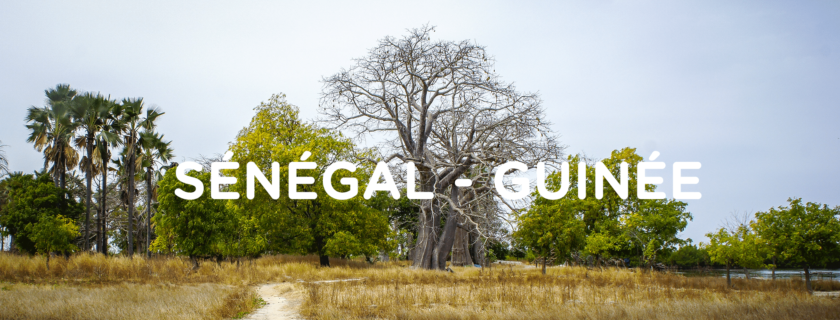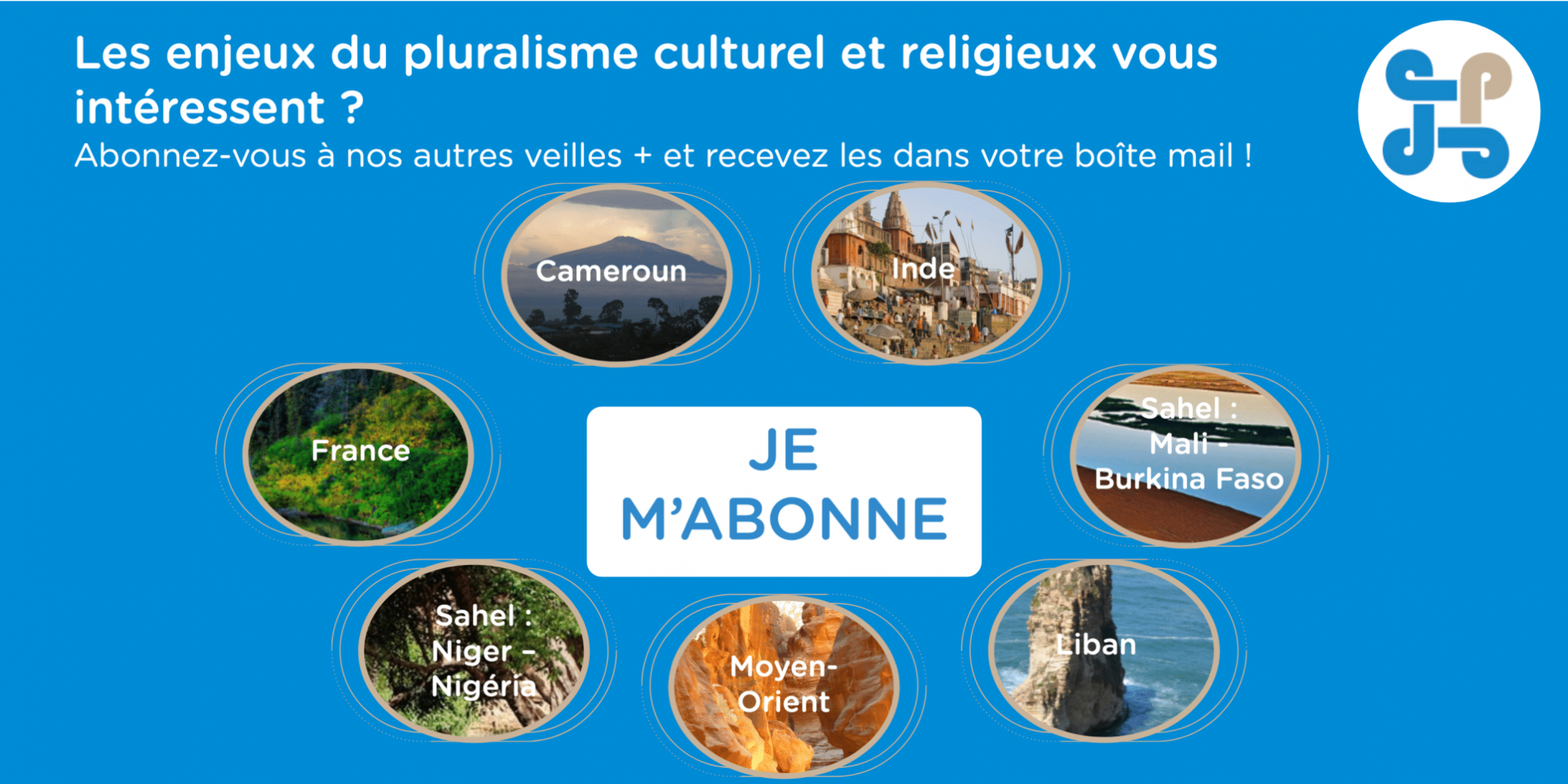|
| |
L’actualité de ces deux dernières semaines a été marquée par le début du ramadan en Guinée et au Sénégal. Dans ces deux pays très majoritairement musulmans, la célébration du mois saint est néanmoins contrariée par le contexte d’inflation lié à la guerre en Ukraine. L’augmentation des prix des denrées alimentaires contraint les fidèles à limiter les célébrations, notamment en partageant les repas de rupture du jeûne avec moins de proches, ou en famille plus restreinte. Cette année, le lien social créé par les célébrations du Ramadan sera de moindre portée. Dans le reste de l’actualité, l’organisation non gouvernementale Amnesty International a publié son rapport annuel sur la situation des droits humains à travers le monde. L’ONG s’est ainsi penchée sur la situation en Guinée où de nombreuses violations ont été documentées, mais aussi au Sénégal, où le gouvernement avait durement réprimé les manifestations du 21 mars à travers le pays. Par ailleurs, selon le Casamançais Guy Marius Sagna, les Sénégalais originaires du sud du pays sont largement stigmatisés dans le contexte de l’opération militaire amorcée par le gouvernement contre les sécessionnistes armés casamançais. Enfin, une traduction du Coran en pulaar vient d’être terminée et diffusée à travers le monde. Cette traduction permettra aux fidèles musulmans notamment guinéens un meilleur accès à leur texte sacré.
The news of the last two weeks has been marked by the beginning of Ramadan in Guinea and Senegal. In these two predominantly Muslim countries, the celebration of the holy month is nevertheless thwarted by the context of inflation linked to the war in Ukraine. The increase in food prices is forcing the faithful to limit their celebrations, notably by sharing the fast-breaking meals with fewer relatives, or with smaller families. This year, the social bond created by Ramadan celebrations will be of lesser significance. In other news, the non-governmental organization Amnesty International has published its annual report on the situation of human rights around the world. The NGO focused on the situation in Guinea, where numerous violations were documented, and in Senegal, where the government cracked down on the March 21 demonstrations throughout the country. In addition, according to Guy Marius Sagna of Casamance, Senegalese from the south of the country are widely stigmatized in the context of the government's military operation against armed Casamance secessionists. Finally, the translation of the Koran into Fulfulde has just been completed and distributed throughout the world. This translation will allow the Muslim faithful, especially Guineans, better access to their sacred text.
|
|
|
|
| |
L'info phare - Source médiatique
|
|
|
|
| |
|
La hausse des prix au Sénégal durant le Ramadan
À Dakar comme dans le reste du Sénégal, le prix des produits de première nécessité augmentent très rapidement, en répercussion des conséquences de la guerre en Ukraine. Au Sénégal, très majoritairement musulman, le ramadan a débuté samedi 2 avril. Les fidèles s’inquiètent de la montée des prix, alors que le mois de Ramadan est supposé permettre les repas festifs en famille élargie. Ainsi, Le ndogou, plat de la rupture du jeûne habituel au Sénégal, ainsi que les repas conviviaux sont limités par l’importante inflation. À la fin du mois de février, le président Macky Sall avait pourtant annoncé de baisser les prix des denrées de première nécessité comme l’huile, le riz et le sucre.
|
|
Rising prices in Senegal during Ramadan
In Dakar, as in the rest of Senegal, the price of basic necessities is rising very rapidly, reflecting the consequences of the war in Ukraine. In Senegal, the majority Muslim, Ramadan began on Saturday, April 2. The faithful are worried about rising prices, while the month of Ramadan is supposed to allow festive meals with extended families. Thus, Le ndogou, dish of breaking the usual fasting in Senegal, as well as the friendly meals are limited by the significant inflation. At the end of February, however, President Macky Sall announced that he would lower the prices of basic necessities such as oil, rice and sugar.
|
|
|
|
|
|
| |
|
Dans le cadre de la guerre en Casamance, les populations du Sud du Sénégal sont stigmatisées selon Guy Marius Sagna
Soupçonné d’être membre du Mouvement des forces démocratiques de Casamance (MFDC), l’activiste Guy Marius Sagna a publiquement nié les rumeurs. Il a ainsi soutenu qu’il n’est pas membre de ce mouvement rebelle et a également dénoncé la stigmatisation envers les gens originaires de Casamance. Selon lui, les Casamançais font l’objet de suspicion de connivence avec les rebelles. Il a ainsi déclaré “ je dénonce vigoureusement ce qui apparaît comme une stigmatisation envers des femmes et des hommes originaires de la Casamance”. Selon Sagna, ça n’est pas uniquement aux Casamançais qu’il revient de prendre position sur les revendications rebelles, mais à l’ensemble des Sénégalais.
|
|
In the context of the war in Casamance, the people of southern Senegal are stigmatized according to Guy Marius Sagna
Suspected of being a member of the Movement of Democratic Forces of Casamance (MFDC), activist Guy Marius Sagna publicly denied the rumors. He thus maintained that he is not a member of this rebel movement and also stigmatized people from Casamance. He said "I vigorously denounce what appears to be a stigmatization of women and men from Casamance. According to Sagna, it is not only up to the Casamance people to take a stand on the rebel claims, but to all Senegalese.
|
|
|
|
|
|
| |
Au Sénégal, la tradition du “panier du Ramadan”
Au Sénégal, le mois de Ramadan s’accompagne de la coutume du « soukeurou koor ». À l’origine, ces paniers de ramadan, appelés “soukeurou koor”, étaient une tradition par laquelle les femmes mariées offraient de quoi rompre le jeûne à leur belle-famille. Mais avec le temps, les cadeaux se sont diversifiés et sont devenus plus coûteux – comprenant bijoux, vaisselle, voire parfois voiture ou billet d’avion pour La Mecque. Dans un contexte de hausse des prix, cette tradition peut devenir un fardeau pour certaines épouses, qui ne peuvent plus se permettre d’offrir ces cadeaux.
|
|
In Senegal, the tradition of the "Ramadan basket
In Senegal, the month of Ramadan is accompanied by the custom of "soukeurou koor". Originally, these Ramadan baskets, called “soukeurou koor”, were a tradition in which married women gave their in-laws something to break the fast. But over time, the gifts have become more diverse and expensive - including jewelry, dishes, and sometimes even a car or plane ticket to Mecca. In a time of rising prices, this tradition can become a burden for some wives, who can no longer afford to give these gifts.
|
|
|
|
|
|
| |
|
En Guinée, le pular-fulfulde intègre l’encyclopédie du Saint-Coran
En Guinée, de nombreux habitants sont musulmans, et parlent les langues de racine pular-fulfulde. Pourtant, les traductions du Coran en pulaar-fulfulde sont très peu accessibles et peu nombreuses. Dans ce sens, le site “islamhouse.com” a ainsi proposé une traduction du Coran afin de diffuser cette version en ligne, notamment grâce à une navigation facile et simple à travers les sourates. La traduction a notamment été effectuée par le guinéen Mamadou Tafsir Baldé, enseignant-chercheur à l’Université Al-Quaraouiyine du Maroc. En traduisant le Coran en pulaar-fulfulde, ce sont près de 60 millions de locuteurs dans le monde qui sont visés selon RFI.
|
|
In Guinea, the Pular-fulfude integrates the encyclopedia of the Holy Koran
In Guinea, many people are Muslims, and speak Pular-Fulfulde languages. However, translations of the Qur'an into Pulaar-Fulfulde are not very accessible and not very numerous. In this sense, the website "islamhouse.com" has proposed a translation of the Quran in order to disseminate this version online, notably through an easy and simple navigation through the suras. The translation has been done by Mamadou Tafsir Baldé, a teacher-researcher at Al-Quaraouiyine University in Morocco. By translating the Koran into Pulaar-Fulfulde, nearly 60 million speakers around the world are targeted according to RFI.
|
|
|
|
|
|
| |
|
La Guinée épinglée pour violation des droits humains, impunité et violences sexuelles
Dans son rapport annuel de 512 pages sur la situation des droits humains dans le monde de l’année 2021, Amnesty International revient notamment sur la situation en Guinée. L’ONG note ainsi la libération des personnes arrêtées arbitrairement dans le cadre des manifestations anti-troisième mandat pour Alpha Condé en 2020. Elle signale également les cas de personnes tuées lors de mouvements de protestation relatifs à des enjeux sur l’exploitation minière, la non-tenue du procès sur le massacre du 28 septembre 2009 au stade de Conakry, ainsi que la persistance des violences sexuelles dans le pays.
|
|
Guinea singled out for human rights violations, impunity and sexual violence
In its 512-page annual report on the state of the world's human rights in 2021, Amnesty International focuses on the situation in Guinea. The NGO notes the release of those arbitrarily arrested in connection with the anti-third term demonstrations for Alpha Conde in 2020. It also reported on cases of people killed during protests over mining issues, the failure to hold a trial on the 28 September 2009 massacre at Conakry Stadium, and the persistence of sexual violence in the country.
|
|
|
|
|
|
| |
Au Sénégal, Amnesty International revient sur les émeutes de mars 2021 et sur les agressions homophobes
Dans son rapport international sur la situation des droits humains à travers le monde, Amnesty International est revenu sur la situation du Sénégal, souvent qualifié de « modèle démocratique en Afrique de l’Ouest ». L’organisation non gouvernementale est néanmoins revenue sur les émeutes de mars 2021, qui ont fait au moins 14 morts selon Amnesty. De violentes manifestations avaient éclatées dans le contexte de l’affaire judicaire concernant l’opposant Ousmane Sonko, visé par une plainte pour viol. Amnesty International dénonce un « recours excessif à la force » pour réprimer ces manifestations. Par ailleurs, l’ONG a critiqué la volonté d’un collectif de durcir la législation contre l’homosexualité. Amnesty a par ailleurs signalé plusieurs agressions des personnes LGBTQI au Sénégal.
|
|
In Senegal, Amnesty International looks back at the March 2021 riots and homophobic attacks
In its international report on the state of human rights around the world, Amnesty International returned to the situation in Senegal, often described as a "democratic model in West Africa. The nongovernmental organization nevertheless returned to the riots of March 2021, which Amnesty said left at least 14 people dead. Violent demonstrations broke out in the context of the judicial case concerning the opponent Ousmane Sonko, who was the target of a complaint for rape. Amnesty International denounced the "excessive use of force" to suppress these demonstrations. The NGO also criticized a group's desire to toughen legislation against homosexuality. Amnesty also reported several attacks on LGBTQI persons in Senegal.
|
|
|
|
|
|
| |
Ce bulletin de veille est réalisé par l’Observatoire Pharos, observatoire du pluralisme des cultures et des religions, dans le cadre de son projet d'action au Sahel. Il rassemble des informations, analyses et déclarations qui ne reflètent pas systématiquement la perception de la situation par l’Observatoire Pharos, mais qui constituent des documents à intégrer dans l’analyse. Les destinataires, partenaires de l’Observatoire Pharos, sont invités à contribuer à la qualité de cette veille par le partage de toutes informations utiles et diffusables. This newsletter is written by Pharos Observatory, an observatory of cultural and religious pluralism, as part of its project in Niger, Nigeria, Burkina Faso and Mali. It gathers information, analyses and speeches which may not reflect Pharos Observatory's feeling about the situation, but which should be taken into account as part of the analysis. All recipients, who are Pharos Observatory partners, are encouraged to contribute to this Watch by sharing any information that is worthwhile and fit to print.
|
|
|
|




